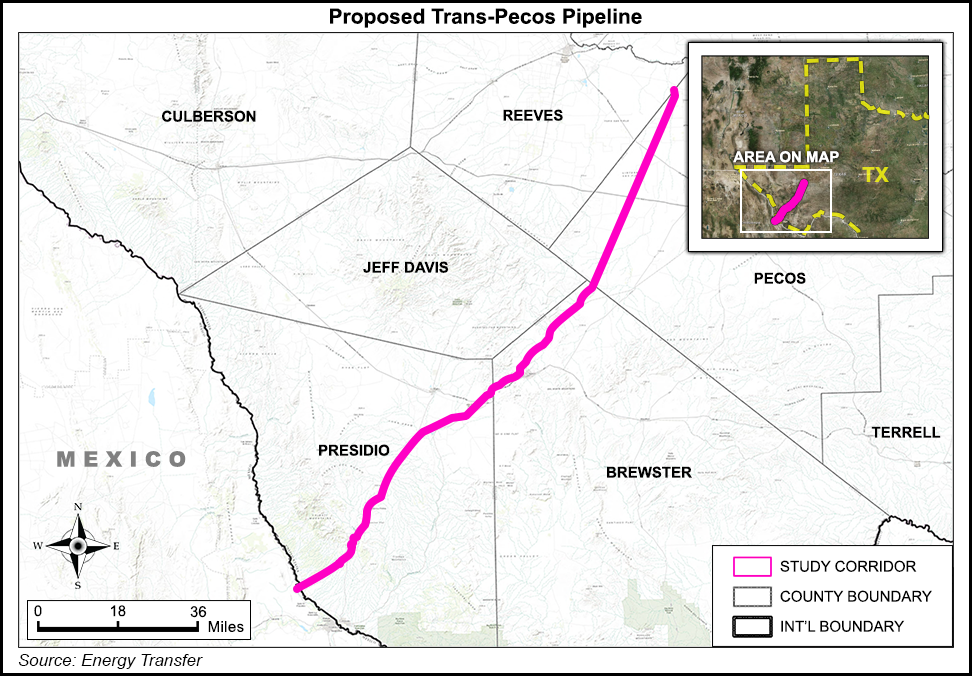Infrastructure | NGI All News Access
FERC Staff to Weigh Trans-Pecos Non-Jurisdictional Status
FERC is asking the developers of the Trans-Pecos Pipeline, which would carry Eagle Ford Shale gas to Mexico, for additional information to confirm that the project is an intrastate pipeline not subject to Commission regulation.

The request follows numerous comments in the Federal Energy Regulatory Commission proceeding [CP15-500] from project opponents who claim that since the pipeline will be used to export gas to Mexico, it should be under FERC rather than Railroad Commission of Texas jurisdiction. FERC recently announced an environmental assessment for the border-crossing facilities related to the project — the only aspect that is currently deemed to be FERC-jurisdictional (see Daily GPI, July 24).
“…[T]he Commission has received over 100 comment letters identifying concerns regarding the 143 miles of upstream pipeline that Trans-Pecos is planning to construct and operate in Texas as a FERC non-jurisdictional intrastate pipeline,” wrote FERC Chairman Norman Bay in a letter to U.S. Rep. Will Hurd (R-TX), who wrote to the Commission about the project last month.
“…[I]n view of the commenters’ concerns, FERC staff is seeking additional information necessary to confirm that the Trans-Pecos pipeline will be a non-jurisdictional intrastate pipeline. In any event, as part of our obligation under the National Environmental Policy Act, Commission staff will require Trans-Pecos to provide information regarding the environmental impacts of the planned upstream pipeline facilities to include the cumulative impact analysis. This will be part of the environmental assessment prepared for the proposed border-crossing export facilities, which will be issued for public comment.”
Last month, commissioners in Brewster County, TX, said they were petitioning FERC to assume jurisdiction over the entire pipeline, which would pass through the county (see Daily GPI, June 24).
As planned, Trans-Pecos would operate as an intrastate, according to developers Energy Transfer Partners LP and Mexico’s Carso. It would have capacity of 1.3 Bcf/d and have interconnects with other intrastate pipelines and processing plants at or near Waha, TX, and in the surrounding area. Interconnections with area interstate pipelines also are planned.
© 2024 Natural Gas Intelligence. All rights reserved.
ISSN © 1532-1231 | ISSN © 2577-9877 |
